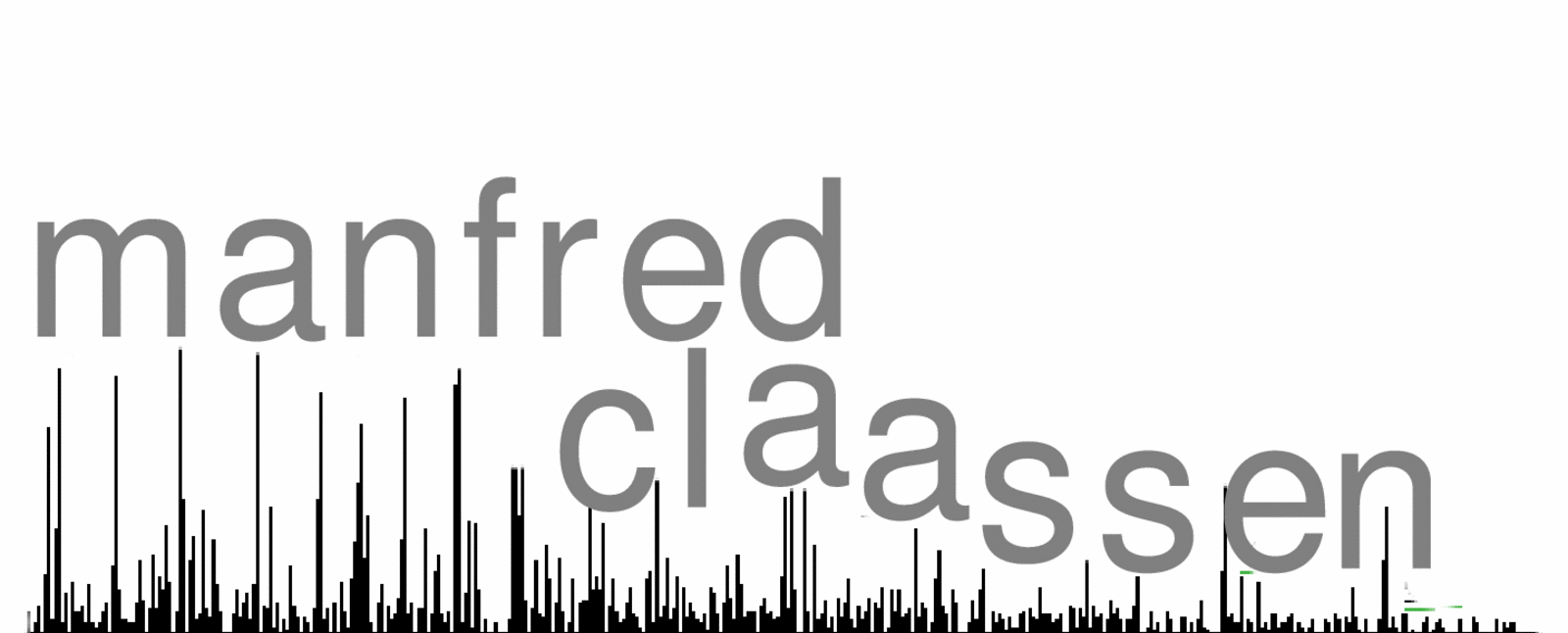 |
About me | Research | Publications | Teaching |
Over the last few years mass spectrometry based proteomics has emerged as the most powerful approach to comprehensively characterize a proteome of cell populations or even individual cells. I am interested in developing methods to infer and validate structures like peptides, proteins and pathways from mass spectrometry based proteomics experiments.

Network Inference. Mass spectrometry based approaches allow to measure the proteome wide response to perturbations of a biological system. Perturbation experiments bear the potential to recover complex structures like cullular pathways. I am developing suitable network inference methods to analyze such experiments.

Validation. Target-decoy strategies allow to generically estimate the uncertainty afflicted with peptide-spectrum matches (PSM). I am extending target-decoy strategies to comprehensively and efficiently search for post-translationally modified peptides and to control the uncertainty of peptide assemblies, i.e. protein identifications (PID).

Predictive Inference. Shotgun proteomics projects are guided by the paradigm that accumulation of experiments necessarily leads to a better characterization of a proteome. I am assessing this paradigm by applying nonparametric Bayesian methods to study the potential and the limitations of mass spectrometry based proteomics experiments.
Structural Bioinformatics. I foster a residual interest in structural bioinformatics that traces back to my diploma theses. These projects aimed to model the structures of peptide receptor complexes. I developed a generalized side chain placement method allowing for peptide backbone flexibility. Its integer linear program formulation allows to efficiently identify globally optimal conformations.